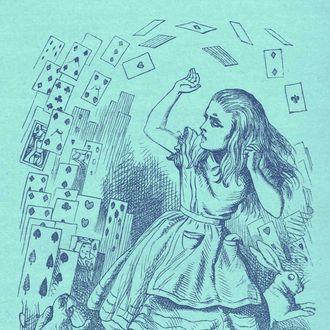
The downsides of anxiety are well-documented: People who suffer from anxiety, and particularly its more extreme variants, often have a great deal of trouble doing things that the non-afflicted take for granted, whether schmoozing at a party or running out to do an errand. Some research has suggested that in addition to these obstacles, anxiety sufferers might also be worse at making certain types of decisions because of their tendency to obsess about potentially negative outcomes, and a new study involving electrical shocks helps support this idea.
For the study, published in Nature Neuroscience, a team led by Sonia Bishop of the University of California - Berkeley gave 31 participants an inventory designed to gauge their general level of anxiety. Then they played a (rather mean) game in which they chose one of two shapes with numbers on them — the number reflecting the severity of the shock they’d receive if they chose “wrong.” (The severest shocks were still rather moderate.)
Now, “wrong” was a bit arbitrary. In one phase of the game — the “stable block” — one shape had a 75 percent chance of delivering a shock, while the other had a 25 percent chance (so, for example, it might be the case that if you choose the circle, you’ll usually escape unscathed, but will sometimes get shocked anyway). In the other phase of the game — the “volatile block” — probabilities were 80 percent and 20 percent, and they flipped every 20 trials.
Sometimes the stable block came first, and sometimes the volatile block came first, but in either case, the researchers were testing how the participants responded to each outcome, and whether the anxious ones did a poorer job adapting. It may sound weird describing this shock-y task as a metaphor for everyday life, but that’s sort of what it was: Humans are constantly making choices, noting the outcomes, and then incorporating that knowledge the next time they have to make a similar choice.
Sure enough, the researchers found that anxious people weren’t as good at picking up on the game’s patterns:
Our results suggest that people are generally able to rationally adapt their learning about aversive outcomes on the basis of whether action-outcome associations are volatile or stable. However, individuals with high trait anxiety show an impoverished ability to do this. This difficulty in using information about the stability of action-outcome contingencies to correctly judge whether or not to repeat an action that has led to an unexpected aversive outcome may well lead high trait-anxious individuals to engage in poor decision-making. It might also result in aversive outcomes being experienced as less predictable and less avoidable. This could in turn lead to an increase in anxiety-related symptomatology, and potentially even be involved in the onset or maintenance of anxiety disorders.
In other words, part of life is understanding that sometimes bad stuff happens even though you made the “right” move, and therefore not over-extrapolating based on, say, a really bad beat at the poker table. Anxious people seem to have a harder time with this because of how focused they are on negative outcomes. Just another thing for them to worry about, unfortunately.

